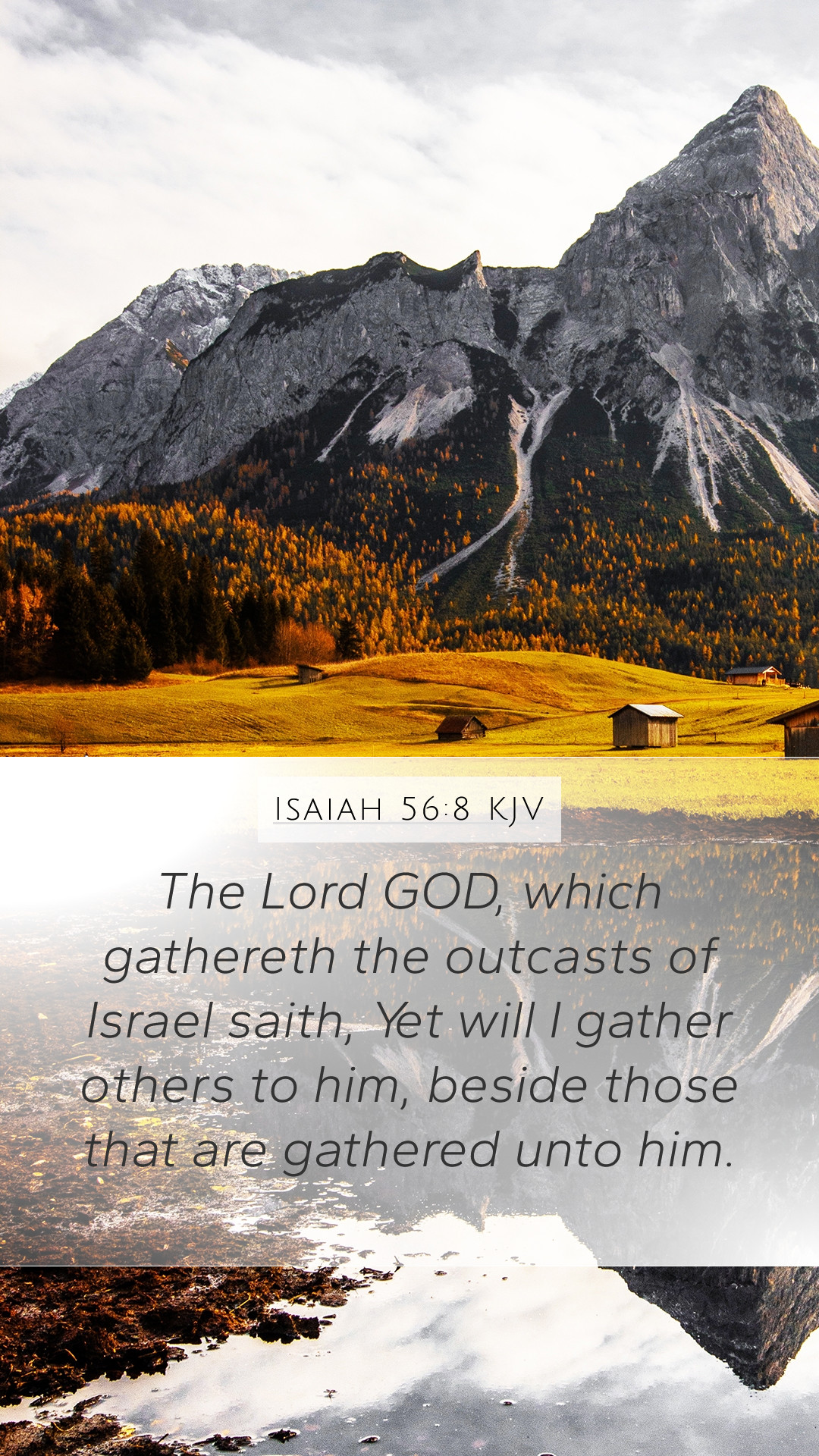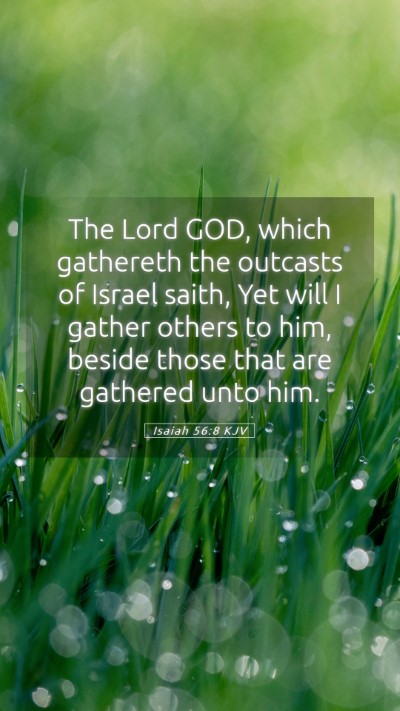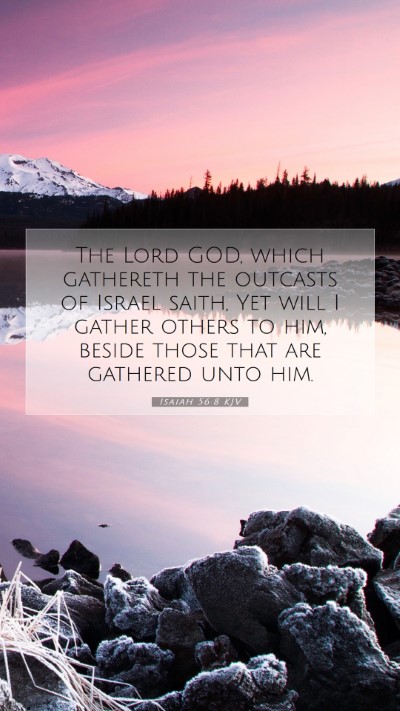Understanding Isaiah 56:8
Isaiah 56:8 states, "The Lord God, which gathereth the outcasts of Israel, saith, Yet will I gather others to him, besides those that are gathered unto him." This verse carries profound meaning and is significant in the context of God's promise of inclusion and restoration for all people.
Overview of the Verse
This verse conveys God's commitment to gather the outcasts of Israel, symbolizing His welcoming nature toward those who feel marginalized or excluded. Through Isaiah's prophecy, it is highlighted that God’s grace is expansive, reaching not only the Israelites but also extending to others beyond their borders.
Bible Verse Meanings and Interpretations
- Inclusivity of God's Love: The first part emphasizes that God is not limited to His chosen people but desires to gather others as well, signifying a universal call to salvation.
- Restoration of Israel: This statement reflects God's faithfulness in restoring His people, underlining a theme prevalent throughout the Book of Isaiah.
- Gathering of the Outcasts: The term "outcasts" refers to those who have been disenfranchised, symbolizing hope for the downtrodden, the lost, and the sinner.
Commentary Insights
Matthew Henry's Commentary: Matthew Henry interprets this verse as a declaration of hope. He emphasizes that God's gathering is an invitation for those who have strayed. God is seen as a shepherd seeking His sheep, showcasing His love and mercy.
Albert Barnes' Commentary: Albert Barnes elaborates that God’s promise to gather those who are rejected signifies that His plans transcend traditional boundaries, hinting towards the inclusion of Gentiles in the covenant community through faith.
Adam Clarke's Commentary: Adam Clarke points out the notion of "gathering others" as prophetic, illustrating a future time when both Jews and Gentiles will come together worshipping the one true God, reflecting the inclusive nature of the Gospel.
Application of the Verse
This verse is not only a promise to ancient Israel but serves as a timeless message for believers today. It encourages individuals to reflect on the importance of inclusivity and compassion towards others, reminding us that God’s grace is available to everyone, regardless of their background or status.
Historical Context
The context of Isaiah 56 is crucial for understanding this verse. As the Israelites faced exile, this prophecy offered them comfort and hope, assuring them of eventual restoration and communion with God. It highlights God’s plan to restore His people while simultaneously welcoming others into His fold.
Related Bible Cross References
- Isaiah 49:6: “It is too small a thing for you to be my servant to restore the tribes of Jacob and bring back those of Israel I have kept. I will also make you a light for the Gentiles, that my salvation may reach to the ends of the earth.”
- John 10:16: “I have other sheep that are not of this sheep pen. I must bring them also. They too will listen to my voice, and there shall be one flock and one shepherd.”
- Romans 15:12: “And again, Isaiah says, ‘The Root of Jesse will spring up, one who will arise to rule over the nations; in him the Gentiles will hope.’”
Conclusion
Isaiah 56:8 encapsulates God's unwavering commitment to gather not only Israel but all nations under His mercy and grace. It illustrates a critical aspect of the Christian faith, emphasizing that the church is a community for all people, a sanctuary for the outcasts. Engaging with this verse can enhance one’s Bible study insights and promote a deeper understanding of Scripture. Through in-depth scripture analysis, readers can discover the vast implications of this message in their daily lives.


